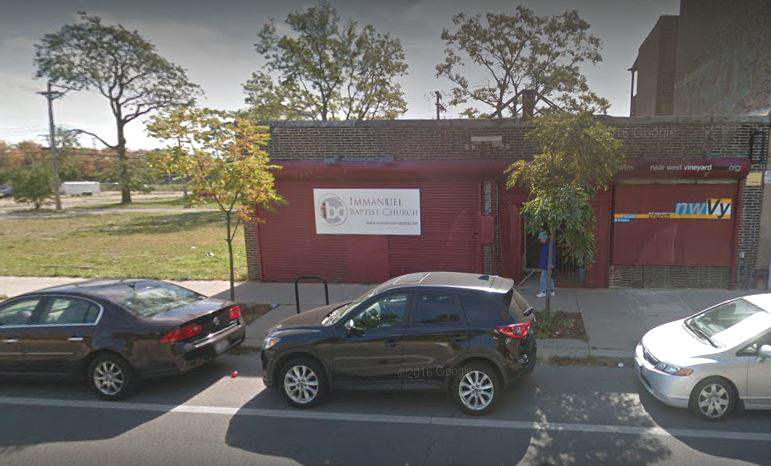
CHICAGO (BP) — Immanuel Baptist Church in Chicago has filed a federal lawsuit over the city’s enforcement of a zoning ordinance that won’t allow the congregation to purchase its building near the University of Illinois-Chicago campus.

“Agonizing” is how Nathan Carter, the church’s pastor, described the decision to either seek other meeting space or file the lawsuit.
Immanuel Baptist, which is affiliated with the Illinois Baptist State Association, has met in its current location since 2011. The church was set to close on the purchase of the building last summer, but the lender would not close on the sale without confirmation from the city.
The main issue is parking; the Chicago zoning ordinance requires religious assemblies to have a certain number of parking spaces based on how many people they can seat. Immanuel needs 19 spaces to comply with the ordinance, but like many organizations in their neighborhood, the church utilizes street parking.
Immanuel and the law firm representing them, Mauck & Baker, are arguing that the ordinance violates the Religious Land Use and Institutionalized Persons Act (RLUIPA) by requiring stricter standards for religious assemblies than for other organizations.
Russell Moore, president of the Southern Baptist Convention’s Ethics & Religious Liberty Commission, said in a written statement to Baptist Press, “Time and time again we have seen government bodies large and small use coercive measures and double standards to silence religious freedom. In times like this, it is precisely the Religious Land Use and Institutionalized Persons Act that is often a church’s last line of legal defense.
“Situations like this are exactly why Baptists have long insisted that no government authority has the right to mute or impede upon religious speech or worship,” Moore said. “My hope is that this case will be settled quickly on this church’s behalf, and if not we look forward to being advocates for this church and all of our churches in the days ahead.”
Immanuel Baptist’s space at 1443 W. Roosevelt Road had been rented by another church previously. Churches are a permitted use in the zoning, and the city’s building department gave Immanuel an occupancy permit in 2011. City officials assured Carter the sale wouldn’t be blocked despite the church’s use of street parking.
Other city officials took a different stance in July 2016, informing Carter “the church still needed to meet the city’s parking requirements and that the city must determine if a religious assembly use is something it wants to promote on a commercial corridor such as Roosevelt Road,” according to a press release from Mauck & Baker.
The church’s ensuing lawsuit, filed in February, was a “last resort,” Carter said. “We’ve been courteous and kind throughout the process and not adversarial, seeking to bend over backwards to meet their demands. We have our alderman’s support.”
Plus, Carter said, “We have many of the same goals for the neighborhood as the city does. We’ve communicated that if they don’t fight it, then we won’t seek damages or fees. [The suit is] framed in such a way that they can admit they are bound by the letter of a current zoning ordinance, but then point out how that zoning ordinance is federally illegal [because of RLUIPA] by requiring more parking spots for religious assembly than it does for non-religious assembly uses that courts have determined are comparable.”
Carter referred to a sign on the door of his local library, which clearly states the library has no parking and patrons are to park on the street. City ordinances also state “live theater venues” with fewer than 150 seats need no parking, nor do libraries or cultural exhibits within the first 4,000 feet. Mauck & Baker is arguing Immanuel meets both of these requirements: Their building seats 146 people and has less than 4,000 square feet.
Carter said the church is praying they can settle the suit within the next few weeks, but if the city decides to continue to fight the purchase, the process could be a lengthy one.
Still, he said, the church sensed the Lord leading in this direction.
“Since 2005 our church has had a vision for being a long-term, stable Gospel presence in our specific area of the city — a cluster of neighborhoods that surround the University of Illinois at Chicago,” Carter said. After meeting in four rented locations over the years and doing an exhaustive search of their community for other spaces, the purchase of their current building seems like a strategic decision.
“If the Lord closes this door, we have no doubt that He will open up another one,” Carter said. “But at the moment this was the only one that was cracked open, and there are scary lights coming from behind it, but we sensed the Lord wanted us to knock.”













